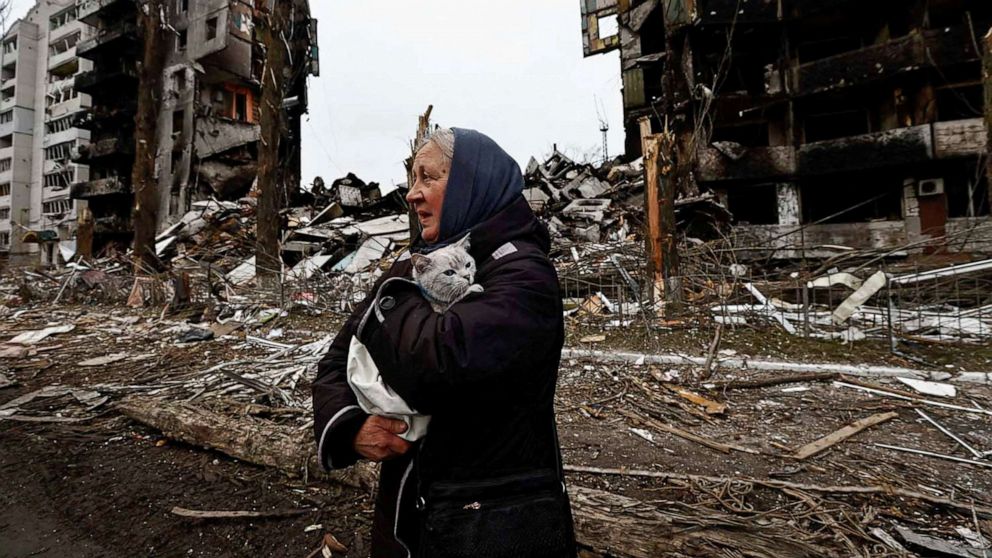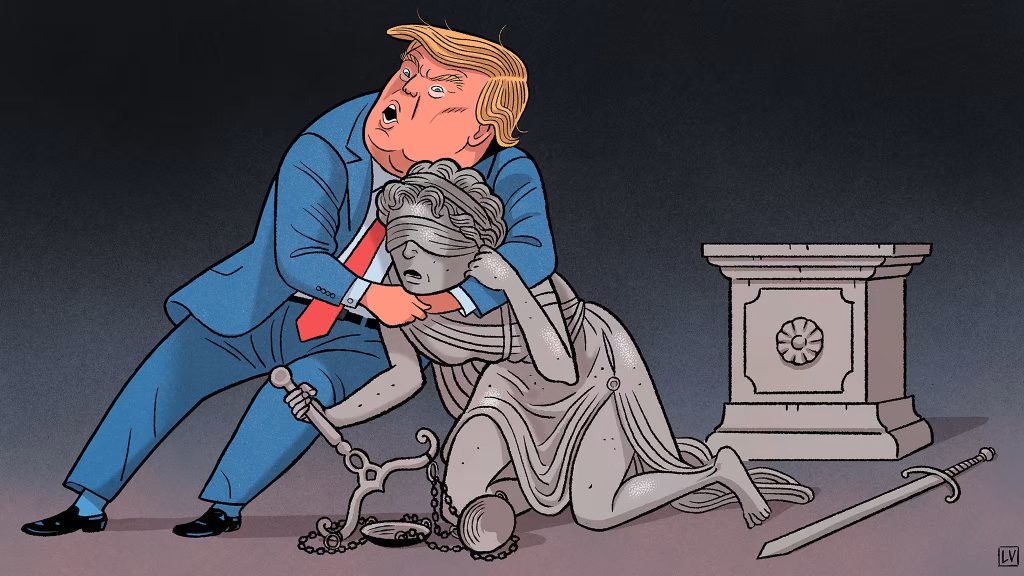
14 August 2023 – When the Ukraine War started in February 2022 (it actually started in 2014 as I have noted in numerous posts), I was at the Auschwitz Nazi death camp and in Kraków, Poland – working on my film series on the life of Jacques Semelin, the Holocaust and genocide, as well as to cover the war in Ukraine. During this time I had been to the Galicia Jewish Museum located in the historic Jewish district of Kazimierz in Kraków. The Museum does a marvelous job documenting the remnants of Jewish culture and life in Polish Galicia, which used to be very vibrant in this area.
The Museum has the most incredible book shop and it was there that I picked up a copy of The Captive Mind (published in 1953) by the Polish poet and Nobel laureate Czeslaw Milosz. I had read Milosz’s “To Begin Where I Am”, the most comprehensive selection of his essays. But The Captive Mind was different. It remains possibly the best book ever written about the lure and trap of totalitarian ideology.
In this classic work, Milosz remarks on our tendency to see the world we have always lived in as natural. The buildings on our street “seem more like rocks rising out of the earth” and the clothes we wear as we do our jobs in those buildings “are exactly what they should be.” This, we assume, is the fundamental order of things — an order we believe can never change.
Until it does, that is.
One morning, when we step onto that same street and see it “littered with glass from bomb-shattered windows,” Milosz notes that we begin to doubt the “naturalness” of our world. Those doubts deepen when we see other buildings reduced to “scaffoldings of plaster, concrete and brick,” their inhabitants now roaming those same streets in search of a loaf of bread or potatoes. After passing the third or fourth corpse on the street, what we assumed was natural turns out, quite literally, to be nonsense. The concrete turns out to be little more than convention.
As a result, Milosz writes, we find that we acquire new habits quickly. This process of re-habituation, however, occurs in different contexts. It can happen, as the catastrophic events in Ukraine reveal, under the pressure of war. In Ukraine, a week hardly passes for the impossible to harden into the possible, the unthinkable to cede to the thinkable, and the unspeakable to become spoken about over coffee.
From activities like Ukrainians going to work and playing at a park in Kyiv, to sheltering from cluster bombs and cruise missiles, they and we are relearning what is possible in 21st century Europe. From turning on a desk lamp thanks to electricity supplied by the nuclear reactor in Zaporizhzhia – to turning a machine gun on those running the reactor, they and we are reconsidering our belief in the unthinkable. Or the destruction of a dam merely to destroy the oncoming advance of the Ukraine Army. Or, early on, from a trickling of Ukrainian refugees to the establishing of “humanitarian corridors” — so disturbing a juxtaposition of words — to accommodate the exodus of millions of Ukrainians, all of us must redefine what is natural in 21st century Europe.
Which of these worlds, Milosz asks, is natural? The world before war or the world during war? “Both are natural,” he replies, “if both are within the realm of one’s experience.” Yet the same can be said about worlds, say, both before and during the pandemic. Or, for that matter, the worlds before and during the politics of not just the pandemic, but of the past half-dozen years in the U.S.
Milosz had spent the war years in Warsaw. This experience, he explained in the preface to “The Captive Mind,” gave him a direct knowledge of “the crimes which Europe has witnessed in the 20th century.” These were the war crimes and genocidal crimes committed by Nazi Germany, of course. But Milosz also meant the crimes committed by Soviet Russia and its puppet regimes against its own citizens before, during and after the war.
They revealed, Milosz affirmed, the sheer plasticity of human beings. So plastic, he declared, “that one can even conceive of the day when a thoroughly self-respecting citizen will crawl about on all fours, sporting a tail of brightly colored feathers as a sign of conformity to the order he lives in.”
It is for this reason, Milosz observed, that East Europeans could not take Americans seriously. Having never undergone what they underwent — and are again undergoing — Americans were cursed with an “appalling” lack of imagination, which made us assume that any order other than the one we had known “cannot last because it is incompatible with human nature.”

But Milosz wrote those words in the mid-20th century. If he were still alive in the early 21st century, would he still insist upon this claim? While they are of a lesser magnitude than the events in Ukraine, recent events in the United States suggest that he might not. Before news from Ukraine pushed all other news to the margins of our media and minds, we were learning that “natural” is not what it was cracked up to be.
Thus, it was once “natural” to believe that one of the members of one of our two political parties would. after the votes were tallied, acknowledge its candidate’s defeat. It was once “natural” to believe that a president would never seek to overturn the results of an election. It was once “natural” to believe that an insurrection in our nation’s capital — itself once unthinkable — would be recognized and condemned by both political parties for what it was: an insurrection.
Yet, to this very day, polls reveal that most Republicans believe that the election was rigged. And yet, the House committee that investigated the events of January 6, 2021, had gathered damning evidence that Donald Trump did try to overturn the election. I spent part of my weekend reading all of the Trump indictments (I know, I am a glutton for punishment) and again … the most damning evidence that Donald Trump did try to overturn the election.
But … most Republican representatives will neither disavow the events of January 6th nor disavow their president. Some have gone so far as to describe those events as “legitimate political discourse, freedom of speech.” What else can we conclude than that they might as well be crawling about on all fours, sporting tails of brightly colored feathers?
There is a well-known story about Arnold Schwarzenegger. He was giving a speech in Washington, DC – a polished performance about making green politics cool. Republicans were whispering to each other: “too bad we can’t nominate this guy.” They meant: for president.
But he could not run for president because Section 1 of Article Two of the Constitution forbids it. The president must be a “natural-born citizen,” which is understood to mean someone who was born in the United States, or whose parents were citizens. Schwarzenegger, though a U.S. citizen, was born in Austria to Austrian parents.
Section 1 of Article Two is one, but not the only, place where the Constitution defines who may run for president. Whereas Section 1 of Article Two has to do with a factors over which a person has no control, place of birth and legal status of parents, Section 3 of the Fourteenth Amendment concerns how an American citizen behaves. It forbids officeholders who try to overthrow the Republic from holding office again. It reads:
“No person shall be a Senator or Representative in Congress, or elector of President and Vice-President, or hold any office, civil or military, under the United States, or under any State, who, having previously taken an oath, as a member of Congress, or as an officer of the United States, or as a member of any State legislature, or as an executive or judicial officer of any State, to support the Constitution of the United States, shall have engaged in insurrection or rebellion against the same, or given aid or comfort to the enemies thereof. But Congress may by a vote of two-thirds of each House, remove such disability.”
It is obvious on a plain reading of this part of our Constitution that (absent a two-thirds vote of both houses of Congress) Donald Trump is now ineligible for the office of the presidency. He took an oath as an officer of the United States, and then engaged in insurrection and rebellion, and gave aid and comfort to others who did the same. No one seriously disputes this. Trump certainly does not. His coup attempt after losing the 2020 election is the platform on which is he is now staging what he portrays as his campaign for the presidency. The big lie he told at the time he continues to tell. He defied the Constitution and is now running against the Constitution.
But one of the odd features about American political life is Americans’ never-ending capacity to look away from the obvious when the obvious might be “controversial.” They talk a good deal about their Constitution, and almost everyone in American political life claims to venerate it – but who really reads it? You just have to get as far as the Fourteenth Amendment to see that Trump cannot be president. To be sure, other people have been trying to make this point. Section Three was discussed in early 2021 as a possible response to Trump’s attempted coup.
Perhaps it is an accident of that debate, which led instead to impeachment, that Section Three has received little attention since. I’ll have more in a subsequent post.

For Milosz, it seemed Americans would never “know the fire, hunger and sword” that Europeans have known:
“It is hard to believe that when one half of the world is living through terrible disasters, the other half can continue a 19th century mode of life, learning about the distress of its distant fellowmen only from movies and newspapers. They have difficulty with what is right in from of them”.
Apart from adding the Internet to his warning, Milosz’s words have not lost an iota of relevance for all of us today.